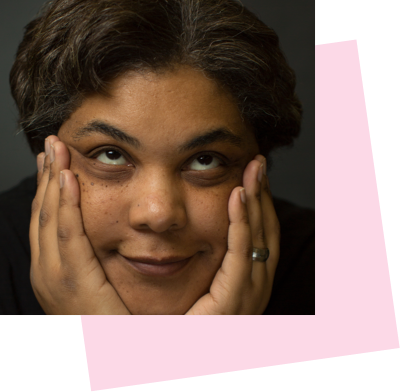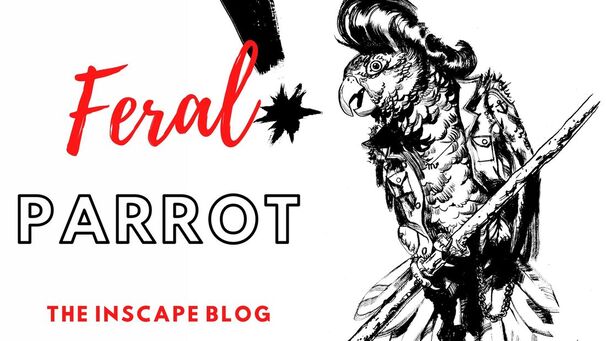- Folio No. 9
- About
- Feral Parrot : The Blog
- INTERVIEWS
- SUBMISSIONS
-
ISSUE ARCHIVE
- PRINT Chapbook No.6 Healing Arts
- Online Issue No.9
- Online Issue No.1 Fall 2016
- Online Issue No.2 Spring 2017
- ONLINE Issue No.3 Fall 2017
- PRINT Vol 72 No 2 Fall 2017
- PRINT Vol 73 No.1 Fall 2018
- ONLINE Issue No. 4 Fall 2018
- Online Issue No.5 Summer 2018
- FOLIO No.1 Fall 2018 VOTE
- ONLINE Issue No.6 Fall 2018 Fall Spirituality
- FOLIO 2 Fall 2019 Celebrating Dia De Los Muertos
- FOLIO No.3 -- Moon Moon Spring 2019
- FOLIO No.4 Celebrating New PCC Writers
- FOLIO No.5 City of Redemption
- FOLIO No.6 Spring 2020
- FOLIO No. 7 - Winter 2021 Into the Forest
- 2022 Handley Awards
- Inscape Alumni Board
- PRINT Chapbook No. 7 Healing Arts
- Blog
- Untitled
Written by Cassie Wilson How do we write about trauma? When do we determine if we are ready? How do we make that jump? It is difficult - it is emotional, a roller coaster with every turn sharp, every breath shaky, every loop naseousating - for the writer and the reader. The hidden moments of your past become raw and vulnerable. Transparency is hard - being exposed to everyone and their criticisms - being exposed to that person or people. There is no ticking time clock counting down for the right moment to “come clean”. It sometimes feels as if you are the guilty one, hiding a secret that could break the hearts of your family and friends, but in a weird way - you feel safe keeping your secret safe from their eyes and ears. And then all of a sudden you have given up your keep-safe - no turning back. No rewind button of life. It is scary and messy and at times too much. You’re afraid of the healing - afraid of the letting go. Powerless to the next course of concerns, reactions and questions. Like I said, transparency is hard, being authentic is not only about the real you, but about what has happened to you. The personal essay, “There Are Distances Between Us”, by Roxane Gay, is bash and unrelenting in a subtle manner. Roxane Gay is a published author of many beautifully stimulating books, my personal favorites are New York Times Bestsellers: "Bad Feminist" and "Hunger: A Memoir of My Body". Gay reveals herself in small ways in this personal essay. She takes the reader on a journey within the interstate highway system, while simultaneously depicting a very traumatic experience. I admire the silent boldness of Gay in this piece. She touches upon a heavy subject with hidden illusions and vivid imagery. She reveals the theme of her essay in the middle of the piece: “Before I left, there had been an incident involving some boys who broke me right down the middle, and, after, I couldn’t pull myself back together.” Instead of describing what happened to her in detail, she uses an analogy of being split apart. Her choice of words is specific, “broke me down the middle”. She gives the piece a heaviness without revealing - feeling - too much. You can sense her struggle, her battle to pull herself back together. The difficulties of living with what has happened to her. Gay’s subtle heaviness alludes to the same feeling that trauma does. Feeling, enduring and dealing with this hidden secret - moving throughout life with the pain, the guilt. Unable to fess up - your entire world is different - but you keep treading. Gay incorporates these heavy lines by weaving them into her story line. The piece originally starts off depicting a highway system: “We are red stars on maps protected beneath hard plastic in highway rest areas tired travelers touch to make sense of where they are.” The movement of her words is hard to ignore. Gay intentionally does not describe her abuse in detail. Instead, she preys upon hidden illusions, disguised with imagery. Her adjective word choice is specific, she chose to use “red”, “hard”, “tired”. These adjectives alone describe an image of abuse, violence and trauma, while still describing imagery of traveling throughout the interstate highway system. The words themselves are split apart from the sentence, connecting to her metaphor of being “broken down the middle”. Gay gives the reader a hidden description of what her abuse felt like. Her perspective is weaved into the sentence with a whisper. Her secret, her keep-safe, is present, unmoved by the mundane movements of life. She then alliterates:“tired travelers touch”. Here, she leaves for the reader a fill in the blank, a mad lib of her life. Each word, phrase and line intentional. She alludes to her trauma with a delicateness, allowing the reader - allowing herself - to move throughout her piece without feeling overwhelmed. I felt like I was traveling with her, going through the phases of her life, understanding her struggle, while remaining unmoved by the distances that kept growing or decreasing between her and her abuse. The fluidity of her piece took me on a journey. Rich with imagery, I touched, saw, smelled and heard every experience she described. The whisper moments were strong, loud. Gay’s piece reminded me that life keeps going, no matter what happens to you. The outside world remains constant, changing, and moving, unaware of personal hardships. No matter how broken, dirty and split a person is, life doesn’t stop. And so, just like Gay, you must continue to move with it, finding strength in every turn and tumble. If you or a loved one is struggling from abuse or trauma, please don't be afraid to stand up and speak up. You're not alone. You matter and so does your voice. Your healing can begin at any time - anywhere - and its waiting for you with open arms. What has broken you - will not be the end of you. You are a survivor - not a victim. If you are struggling and need help: Please visit: https://www.rainn.org/national-resources-sexual-assault-survivors-and-their-loved-ones or Please call the National Sexual Assault Hotline: (800)-656-4673 Cassie Wilson is a student at Pasadena City College majoring in English. She hopes to become a published creative non-fiction writer and is currently in the works of writing her own memoir. She says, "Trauma is a really hard subject matter to to write about and, at times, to read about it. I really admire how strong Gay stands in her personal essay, she was able to describe what happened to her without giving away too much - for herself and her audience. She is an example of strength and a real life archetype of healing."
1 Comment
Gia
6/7/2019 05:42:22 pm
The brilliant author of this outstandingly insightful post on trauma , has made such an impact in my day by reading this! As a person struggling from PTSD do to sexual abuse this normalised the many struggles I still face today while working through it. Now I just have to read Ms. Roxanne Gays book as well!!!
Reply
Leave a Reply. |
IMPORTANT NOTE:
PCC Inscape Magazine, housed at Pasadena City College, is following Coronavirus protocols. At this time our staff continues to read submissions and publish web content. Note:
Blog Posts reflect the opinions of the writer and not the opinions of Pasadena City College or Inscape Magazine Editorial Staff Members. Archives
December 2023
Categories
All
|



 RSS Feed
RSS Feed